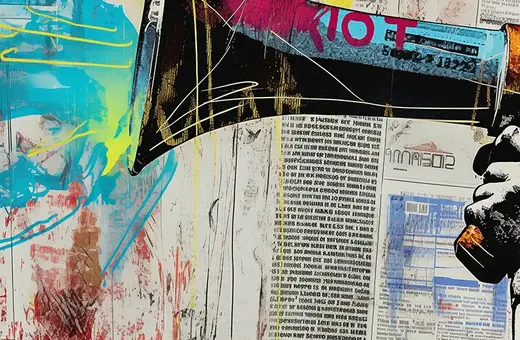Good and evil are still the moral categories through which we judge people’s actions. But these seemingly universal and inescapable moral concepts are anything but. They are the product of a European history and power structure that construed the perceived inferiority and weakness of the ‘other’ as evil. The universality of ‘good and evil’ is a mythology that was used to legitimate the atrocities of Western civilization. To move beyond the dichotomy of good and evil would be to strip away the pretense at the heart of modernity: that ethics is founded on the autonomous rational individual, rather than on power, argues Tommy Curry. Read the full interview below.
Good and evil are arguably still the main moral categories through which we judge people’s actions. Is this moral distinction useful, or is it overly reductive as a way of understanding human behaviour as either pure and good, or corrupt and evil?
Good and evil remain categories of morality because they indicate how the ordination of people, institutions, and leaders with power and being in possession of the good are distributed throughout a society. These categories indicate which entities are charged with protecting civilization and saving others from evil. Historically the idea of good and evil have been concepts that have married individuals to the will of groups and permitted individuals entrance into a social contract with states.
Intellectually, it is useful for historians and philosophers to understand how civilizations have constructed what is good and condemned what is taken to be evil during a specific time or within a particular culture or geography. Unfortunately, what is thought to be pure or good or corrupt and evil asks us to ultimately appeal to a utopian world whereby our judgements can be thought of abstractly—without the influence of our own personal interest and will. Good and evil tell us little about human behavior—only how human beings have traditionally judged behaviors that produce harm or benefit.
What do you see as the main role of these moral concepts today?
The labels of good and evil are heuristics of social conscience. They are markers of a particular society or community’s conceptual horizons of harm, injury, or dissent. These are highly contestable markers that are under persistent scrutiny but nonetheless often codified in law and socialized throughout the society through education, media, and peer expectation. However, the basic dichotomy between good and evil serves as the foundation if not the building blocks for how individuals engage their existential burdens of freedom and pleasure as well as how groups define themselves in relation to others.
___
___
Is part of the problem with good and evil that we can’t seem to reach agreement over their meaning? Terrorists famously believe they are the good guys, fighting against evil. Even the Nazis believed they were on a moral crusade against corruption, managing to enlist the support of the Catholic Church. Do these concepts lose their meaning if one person’s good is another person’s evil?
Agreement is not really the problem. The categories of difference that allow one to believe the terrorist is evil supposes that the imperial force is either good or morally ambiguous enough that they are to be preferred to the terrorist which is of course bound up with the civilizational discourse of Orientalism and Islamophobia. Throughout the West, and really the world given the reach of globalization, we ascertain the morality of groups (e.g.: terrorists, Nazis, etc.) based on the horrors they commit.





















Join the conversation